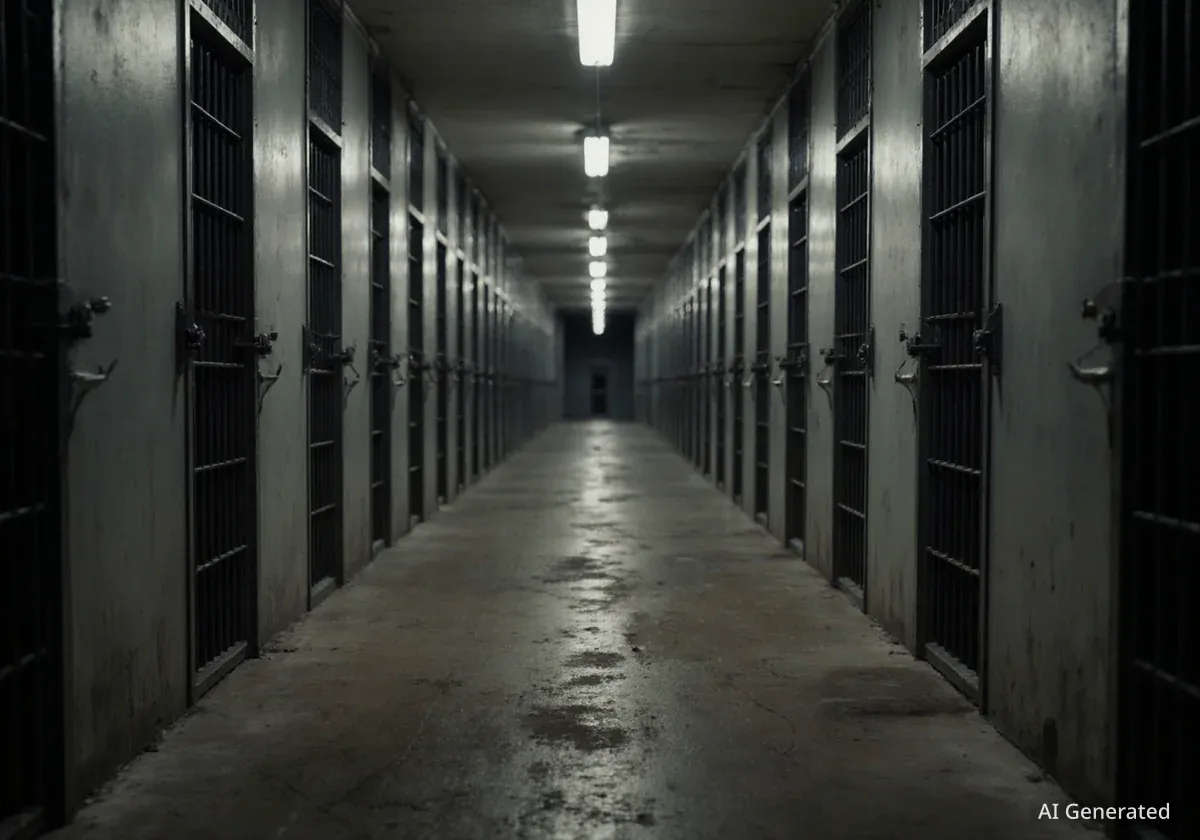A 41-year-old man, previously sentenced to 20 years in prison for the murder of his wife in Kehrsatz, Canton of Bern, appeared before the Bern High Court on Monday to appeal his conviction. The defendant, Lukas D., exercised his right to remain silent throughout the initial proceedings of the appeal hearing.
Key Takeaways
- Lukas D. is appealing a 20-year prison sentence for the murder of his 29-year-old wife, Luiza D., in December 2022.
- The initial court found him guilty of administering a sedative and then strangling her.
- The defendant has consistently maintained that his wife, who had mental health issues, died by suicide.
- During the appeal hearing on Monday, the accused refused to answer any questions from the court.
- The Bern High Court is expected to announce its decision on Wednesday.
Appeal Hearing Begins at Bern High Court
The case concerning the death of Luiza D. has advanced to the appellate stage. On Monday, her husband, Lukas D., faced the Bern High Court to challenge the murder conviction handed down by the Regional Court of Bern-Mittelland in August 2023.
During the hearing, the defendant chose not to speak. When addressed by the court, he formally invoked his right to remain silent. According to reports from the hearing, he remained polite but firm in his refusal to answer any questions posed by the judges, effectively offering no new testimony for the court's consideration.
With the defendant declining to comment, the court's attention shifted to the legal arguments. The proceedings are now focused on the closing statements from both the prosecution and the defense attorneys, which are expected to occupy the remainder of the session.
The Right to Silence
In the Swiss legal system, an accused person has the right to refuse to testify or answer questions. This right protects individuals from self-incrimination. The court cannot interpret this silence as an admission of guilt, and the burden of proof remains entirely on the prosecution.
Background of the Initial Conviction
The original trial concluded with a guilty verdict against Lukas D., an aspiring paramedic. The court found that in December 2022, he murdered his 29-year-old wife in their shared apartment in Kehrsatz.
The prosecution's case argued that he first administered Dormicum, a potent sedative, to his wife. Once she was unconscious, he proceeded to strangle her. The Regional Court of Bern-Mittelland found this sequence of events to be proven beyond a reasonable doubt and sentenced him to 20 years in prison for murder.
Throughout the initial trial, Lukas D. consistently denied any involvement in his wife's death. His defense was built on the claim that she had taken her own life.
Conflicting Narratives of a Tragedy
The core of the legal battle lies in two fundamentally different explanations for Luiza D.'s death. One narrative points to a calculated murder, while the other describes a tragic suicide.
The Prosecution's Argument
The prosecution successfully argued in the first instance that the evidence pointed to homicide. Key elements of their case included:
- The presence of Dormicum: Toxicological reports likely confirmed the sedative was in her system.
- Signs of Strangulation: Forensic evidence would have indicated the cause of death was asphyxiation due to external pressure on the neck.
- Inconsistencies in the Defendant's Story: The court may have found his account of the events leading up to her death to be implausible or contradictory.
The lower court ultimately accepted the prosecution's view, concluding that Lukas D. deliberately killed his wife while she was incapacitated by the sedative he had administered.
The Defense's Position
The defense has maintained a consistent counter-narrative. They assert that Luiza D. was struggling with significant mental health challenges. According to the defendant, these issues led her to take her own life.
"His psychologically distressed wife took her own life," the defendant's legal team argued during the initial trial, a position they continue to hold in the appeal.
This claim suggests that any evidence, such as the presence of a sedative, could be interpreted as part of a planned suicide rather than a prelude to murder. The defense is now tasked with convincing the High Court that the lower court's interpretation of the evidence was incorrect and that reasonable doubt exists.
About Dormicum (Midazolam)
Dormicum is the brand name for the drug Midazolam, a fast-acting benzodiazepine. It is commonly used in medical settings as a sedative before procedures. Due to its potent effects, which include drowsiness and memory impairment, its presence in toxicology reports can be a critical piece of evidence in criminal investigations.
What Happens Next in the Legal Process
The appeal hearing represents a full re-evaluation of the case, although it is based on the evidence presented in the initial trial unless new, significant evidence is admitted. The High Court judges will review the facts, legal arguments, and the lower court's reasoning.
Following the closing arguments from both legal teams, the panel of judges will deliberate. They will assess whether the original conviction was legally sound and supported by the evidence presented.
The final verdict of the Bern High Court is a highly anticipated moment in this case. The decision is scheduled to be formally announced on Wednesday. This ruling will either uphold the 20-year sentence, overturn it, or potentially order a retrial, bringing a new chapter to this tragic and complex case from Kehrsatz.




